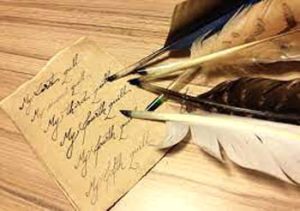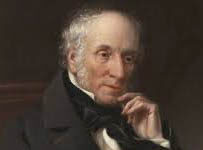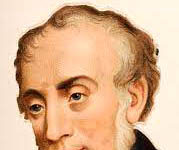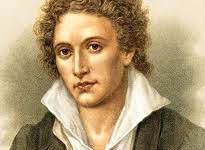Definitions of Literature Through the Ages
Definitions of Literature Through the Ages
Definitions of Literature Through the Ages
Literature, as a reflection of human creativity and expression, has evolved over the ages, encompassing a myriad of forms, genres, and styles. Throughout history, various authors, critics, poets, and thinkers have attempted to define literature, often approaching it from diverse perspectives. These definitions not only highlight the dynamic nature of literature but also underscore its significance in shaping culture, society, and human understanding.
Definition by Aristotle: Aristotle, the ancient Greek philosopher, posited a comprehensive view of literature. He defined literature as “an imitation of an action that is serious, complete, and of a certain magnitude.” This definition lays the foundation for the concept of mimesis, suggesting that literature imitates reality, while its seriousness and completeness emphasize the intrinsic value of its content. Aristotle’s emphasis on catharsis—the purging of emotions—further underscores literature’s psychological and emotional impact on readers.
Aristotle’s definition emphasizes literature’s role as a mirror to life, offering readers a simulated experience of human actions and emotions. The concept of ‘seriousness’ underscores literature’s ability to explore profound themes and evoke emotional responses.
Definition by Samuel Johnson: Samuel Johnson, an 18th-century English writer, defined literature as “a mode of composition, implying more careful and laborious efforts than are necessary to prose.” Johnson’s definition underscores the intricacies of language and the deliberate crafting of words that distinguish literature from ordinary discourse.
Johnson’s perspective highlights the craftsmanship and artistry behind literary works, suggesting that literature demands a heightened level of attention to linguistic detail. This notion encourages readers to appreciate the beauty and skill in the arrangement of words.
Definition by Viktor Shklovsky: Viktor Shklovsky, a Russian formalist critic, introduced the concept of defamiliarization or ostranenie. He defined literature as “the technique of making objects ‘unfamiliar,’ of making forms difficult, increasing the difficulty and length of perception because the process of perception is an aesthetic end in itself and must be prolonged.”
Shklovsky’s definition challenges conventional perceptions by suggesting that literature should strive to make the familiar seem unfamiliar. This approach encourages readers to engage with the text in a more active and contemplative manner, heightening the aesthetic experience through prolonged engagement.
Definition by Roland Barthes: Roland Barthes, a French literary theorist, proposed that literature is “the question minus the answer.” Barthes believed that literature’s power lay in its ability to raise questions, create ambiguity, and challenge established norms, rather than providing straightforward answers.
Barthes’ definition emphasizes literature’s role as a catalyst for critical thinking and exploration. By leaving room for interpretation and open-mindedness, literature invites readers to engage intellectually and emotionally, fostering a deeper understanding of complex ideas.
Definition by Confucius: Confucius, the ancient Chinese philosopher, regarded literature as “the mirror of all truths.” In this view, literature assumes the role of reflecting the fundamental truths and values that guide human conduct and society.
Confucius’ definition underscores literature’s role as a moral and ethical guide, shedding light on societal norms, virtues, and human relationships. It emphasizes literature’s ability to hold up a mirror to the human experience and provide insights into universal truths. Definitions of Literature
Definition by Dante Alighieri: Dante, the Italian poet, portrayed literature as “the divine science.” He regarded it as a conduit through which humans could connect with the divine, fostering spiritual enlightenment and understanding.
Dante’s perspective elevates literature to a realm beyond the earthly, suggesting that it possesses the potential to transcend the ordinary and provide glimpses of the divine. It highlights the transformative power of literature on both individual and collective levels.
Definition by Virginia Woolf: Virginia Woolf, a modernist English writer, articulated that “literature is the humane pursuit of a shared understanding of human experience.” For Woolf, literature offers a bridge that connects diverse individuals by exploring the common threads of human existence.
Woolf’s definition emphasizes literature’s capacity to forge connections across time, space, and cultures. It stresses the empathetic aspect of literature, fostering a sense of shared humanity by delving into the multifaceted layers of human experience.
Definition by Chinua Achebe: Chinua Achebe, the Nigerian novelist, remarked that “literature is a weapon against oppression.” Achebe believed that literature could expose social injustices, challenge dominant narratives, and empower marginalized voices.
Achebe’s definition highlights the activism inherent in literature, its potential to ignite social change, and its role in giving voice to those often silenced. It underscores literature’s power to confront oppression and shape a more equitable world.
Definition by Italo Calvino: Italian writer Italo Calvino described literature as “a struggle to escape from the confines of language; it stretches out from the utmost limits of what can be said; what stirs literature is the call and attraction of what is not in the dictionary.”
Calvino’s definition delves into the boundaries of language, suggesting that literature strives to convey what words alone cannot encompass. It emphasizes literature’s quest to capture the ineffable and evoke emotions beyond the constraints of linguistic definitions. Definitions of Literature
Definition by Rabindranath Tagore: Rabindranath Tagore, the Nobel laureate poet, described literature as “the artistic expression of the life of society.” Tagore believed that literature was a mirror that reflected the ethos, aspirations, and struggles of society.
Tagore’s definition accentuates literature’s role in capturing the collective pulse of a society, showcasing its joys, sorrows, and transformative moments. It emphasizes the connection between literature and societal evolution.
Definition by R. K. Narayan: Renowned Indian novelist R. K. Narayan described literature as “the instrument of self-expression.” Narayan’s perspective emphasizes the individual’s ability to communicate thoughts, emotions, and experiences through literary forms.
Narayan’s definition underscores the personal nature of literature, emphasizing the writer’s role as a conduit for self-expression. It highlights literature’s capacity to capture the essence of individual perspectives and emotions.
Definition by Mahasweta Devi: Mahasweta Devi, a prominent Bengali writer and activist, viewed literature as “the conscience of a society.” Devi believed that literature could unveil the harsh realities of marginalized communities and act as a catalyst for social change.
Devi’s definition highlights the transformative potential of literature by shedding light on societal injustices and giving voice to the voiceless. It underscores literature’s role in holding a mirror to society’s conscience.
Definition by Amrita Pritam: Amrita Pritam, a celebrated Punjabi poet and novelist, defined literature as “the record of the poet’s sensitivity.” Pritam believed that literature was a reflection of the author’s innermost emotions and perceptions.
Pritam’s definition places the spotlight on the emotional depth of literature, portraying it as a medium through which authors share their intimate thoughts, experiences, and vulnerabilities with readers. Definitions of Literature
Definition by Arundhati Roy: Contemporary author Arundhati Roy has described literature as “a place where self, memory, and invention all coalesce into a self-made prism.” Roy’s definition emphasizes literature’s role in blending personal experiences, memory, and imagination.
Roy’s definition highlights the multifaceted nature of literature, where personal introspection and creative innovation intersect to form a distinct prism through which authors offer their unique perspectives on the world.
In culmination, literature has been defined through the ages from various vantage points, showcasing its multifaceted nature and its capacity to elicit emotions, provoke thought, and challenge perceptions. Aristotle, Johnson, Shklovsky, and Barthes offer distinct perspectives that collectively highlight literature’s role as a creative and cognitive force. Drawing from these insights, we can come to the conclusion that literature is a purposeful, artistic expression that imitates and transforms reality, employing carefully crafted language to evoke emotions, inspire contemplation, and provoke intellectual exploration. 0 0 0. Definitions of Literature
Definitions of Literature Through the Ages
N.B. This article ‘Definitions of Literature Through the Ages’ originally belongs to the book ‘The Origin Evolution & Functions of Literature‘ by Menonim Menonimus. Definitions of Literature
Books of Literary Criticism by M. Menonimus:
- World Short Story Criticism
- World Poetry Criticism
- World Drama Criticism
- World Novel Criticism
- World Essay Criticism
- Indian English Poetry Criticism
- Indian English Poets and Poetry Chief Features
- Emily Dickinson’s Poetry-A Thematic Study
- Walt Whitman’s Poetry-A Thematic Study
- Critical Essays on English Poetry
- Tawfiq al-Hakim’s Novel: Return of the Spirit-An Analytical Study
- Tawfiq al-Hakim’s Novel: ‘Yawmiyyat Naib Fil Arayaf’-An Analytical Study
- Analytical Studies of Some Arabic Short Stories
- A Brief History of Arabic Literature: Pre-Islamic Period (500 AD-622 AD)
- A Brief History of Arabic Literature: Early Islamic Period (622 AD-661 AD)
- Reviews on William Shakespeare’s Works
- Reviews of Charles Dickens’ Works
- Reviews of John Milton’s Literary Works
- Reviews of Some Iconic Travelogues
- Shakespeare’s Sonnets-Critical Studies
- Analytical Studies of Selected Poems of Sarojini Naidu
- Analytical Studies of Selected Poems of Rabindranath Tagore
- Analytical Studies of Selected Indian English Poems
- Reviews of Selected Motivational Books
- Origin Evolution & Functions of Literature …
Additional Searches::
- The Functions of Literature
- Evolutionary Literary Study
- Functions of Literature
- Principles of Literature
- Literary Theory
- Definitions of Literature











